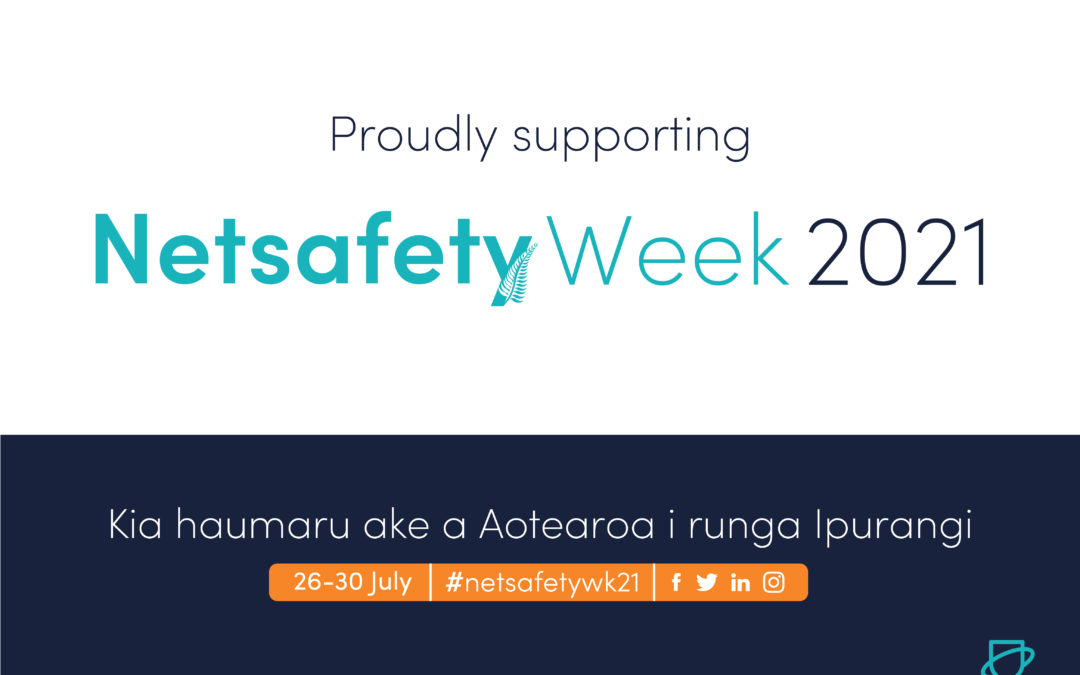Aotearoa’s first Netsafety Week is here! It’s all about creating a safer online environment by sharing the ways we can make online spaces safe, recognising the positive power of the internet and knowing where to get help; and we’re proud to support it.
Research from our friends at Netsafe shows 1 in 5 teenagers and 1 in 10 adults experienced something harmful online in the last year. Our role of helping all ākonga thrive in a digital world means we’re passionate about joining this important cause and raising awareness around online safety.
To help keep you and your whānau safe online check out these five tips from our friends at Netsafe.
Five tips to help make Aotearoa safer online
1. Talk with family and friends
It’s important to engage with whānau ōu hoa about the technologies we use. Netsafety Week is an opportunity to encourage positive korero around the power of the internet and have regular, non-judgemental conversations to minimise any harm if things go wrong. It also lets your loved ones know that you’re there to help.
2. Be a good digital citizen
A lot of internet activity happens on public platforms. It’s important to think twice before engaging online as it can be hard to delete or remove content you want to take back. Netsafety Week is a chance to reinforce good etiquette, and to be respectful of others and their differences. We know that certain groups of people are subject to more abuse and suffer more harm online. Speech becomes hate speech when it is used to attack a person or group of people based on attributes including race, religion, ethnicity, gender, disability, or sexual orientation. It can also be a breach of the law.
3. Swipe left on fake news
A lot of what we see or read online is true, but sometimes fake information is put there on purpose to spread false information. Netsafe’s research reveals a third of people have accidentally shared fake news online. It can be hard to tell the difference between what’s real and fake so always ask yourself: is what I’m reading clickbait? Is the source trustworthy? Are the photos real? Where can I fact check this info? You can help others by not sharing fake news and reporting it when you see it.
4. Discuss sensitive topics
Sharing nudes is part of everyday conversation for many people, and there’s also a strong misconception amongst young people that everybody’s doing it. This myth places extra pressure and can result in many people being put in uncomfortable situations – and it can impact on people’s ability to seek help. Having open conversations around online intimate images and the places you can get support if your images have been shared or you’ve received one you didn’t want helps to remove the stigma.
5. Know your rights
The Harmful Digital Communications Act helps people dealing with serious or repeated harmful digital communications (like texts, emails or social media content). The law sets out 10 Communication Principles which define what is good and bad behaviour. Netsafe has the responsibility to assist under the law and their expert incident team is available 7 days a week.
The internet plays a big part in keeping us connected and it isn’t slowing down anytime soon. At N4L we protect kaiako and ākonga from the worst of the web with our Safe & Secure Internet – which includes web filtering and firewall solutions, as well as a DNS (Domain Name Service) threat protection. Over 2.2 million online security threats like phishing scams, malware and DDoS (Distributed Denial of Service) attacks were blocked per school day in Term 2 2020 – that’s equivalent to 1,529 blocks per minute!
By joining together, we can raise awareness on how to safely use digital technology to help our communities and ākonga online and ensure more positive experiences for everyone.
For free advice and support on internet issues including bullying, grooming, scams, stalking, and image-based abuse, contact Netsafe at [email protected] or call 0508 NETSAFE (0508 638 723).

